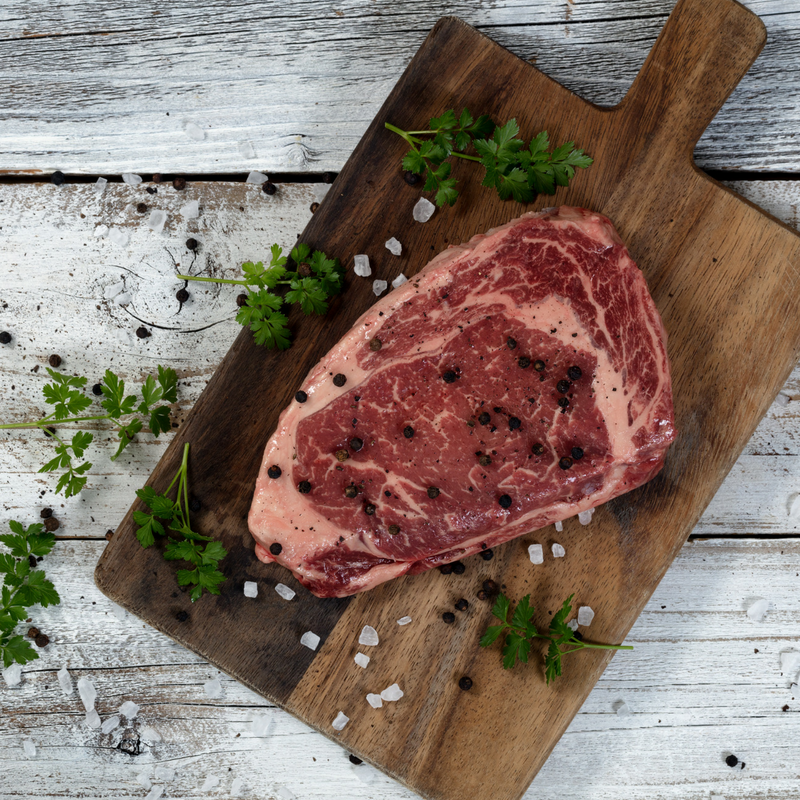
Attorney Pete Kennedy’s below article first appeared on Realmilk.com and is published here with permission.
Access to slaughterhouses has been poor for small livestock producers in most of the country for many years now but has become considerably worse since the onset of the COVID-19 crisis. USDA-inspected slaughterhouses have since last spring been booking customers as far out as 2022. Many custom slaughterhouses are now booking well into 2021.
Demand for locally raised meat is only going to increase. At a recent food safety conference, a high ranking official from the United States Department of Agriculture (USDA) announced that USDA was working to have low-dose ionizing radiation, known as irradiation, to be considered as a “processing aid”a which means there would be no labeling requirement to inform consumers that meat or poultry they were purchasing had been irradiated.
One possible answer for the slaughterhouse logjam is the personal use exemption codified in federal regulation at 9 CFR 303(a)(1). The regulation states:
The requirements of the [Federal Meat Inspection] Act and the regulations in this subchapter for the inspection of the preparation of products do not apply to:
(1) The slaughtering by any individual of livestock of his own raising and the preparation by him and transportation and commerce of the carcasses, parts thereof, meat and meat food products of such livestock exclusively for use by him and members of his household and his non-paying guests and employees.1
On May 24, 2018, USDA’s Food Safety and Inspection Service (FSIS) published a guidance document titled, “FSIS Guidelines for Determining Whether a Livestock Slaughter or Processing Firm Is Exempt from the Inspection Requirements of the Federal Meat Inspection Act.” In the guidance, FSIS explains what those under various exemptions from inspection, including the personal use exemption, can legally do. FSIS’s interpretation of the guidance provides a way for farmers to sell live meat animals while being under the personal use rather than the custom slaughter exemption.
The guidance states that under the personal use exemption,
- A person may purchase livestock from a farm or ranch and then slaughter it onsite using the farm or ranch facilities or equipment.
- a. If a person purchases livestock, and uses the on-site facilities without assistance from the seller, then the activity remains personal use.
- b. If the seller participates in the slaughter or processing activity, then the facility owner is subject to the custom [slaughter] exempt criteria….2
The document goes on to state, ”the owners of the livestock may or may not reside at the same physical location as the animal”,3 establishing that there can be more than one owner under the personal use exemption. FSIS does not say how many owners there can be under the exemption, but it has stated that there can be unlimited owners under the custom slaughter exemption.4 FSIS has stated that all owners must obtain some portion of the custom animal but has not required that there be a specific minimum amount.5
The only other requirements listed in the guidance for the personal use exemption have to do with adulteration. FSIS requires:
- “No livestock are slaughtered which are unfit for human consumption.”6
- “Specified risk materials (SRMs) are inedible and prohibited for use as human food.”7
- “The carcasses and parts are not prepared, packed or held, under insanitary conditions.”8
There are many more requirements for the custom slaughter and custom processing exemption than there are for the personal use exemption including requirements for the physical facility, water, labeling, recordkeeping, and ingredients used in the preparation of meat products.9 There are also state licensing requirements for custom facilities; usually there is no licensing requirement for a farmer operating under the personal use exemption.
Most, if not all, states have adopted the personal use exemption as part of their law; few of those states have imposed additional requirements beyond what the Feds mandate.
There is no limit on the number of livestock that an owner may slaughter and process for their personal use.10 Livestock slaughtered and processed under this exemption can be shipped across state lines.11 For the farmer shut out at inspected and custom slaughterhouses, it’s possible to sell live animals under the personal use exemption if one of the owners is experienced at meat processing, whether that individual is another farmer or someone specializing in the trade.
a Processing aids: Ingredients that are present in a meat or poultry product in an insignificant amount and that have no functional or technical effects in the finished meat or poultry product are considered to be processing aids. Processing aids are not required to be listed in the ingredients statement for a meat or poultry product. [FSIS, “Compliance Guide on the Determination of Processing Aids”, PDF, April 8, 2008; weblink]
Footnotes
1. 9 CFR 303.1(a)(1), see also 21 USC 623(a)
2. USDA-FSIS, “FSIS Guidelines for Determining Whether a Livestock Slaughter or Processing Firm Is Exempt from the Inspection Requirements of the Federal Meat Inspection Act”, PDF, May 24, 2018, p. 3. Accessed 11/5/2020 at https://www.fsis.usda.gov/wps/portal/fsis/topics/regulatory-compliance/guidelines/2018-0007
3. Ibid.
4. FSIS, “For Dr. Gillespie – ownership, custom meat”, AskFSIS, PDF, April 13, 2017
5. Ibid.
6. Guidelines, p.3
7. Ibid.
8. Ibid. See also 9 CFR 310.22
9. See 9 CFR 303.1(a)(2)
10. Guidelines, p.3
11. Ibid.
YOUR FUND AT WORK
Services provided by FTCLDF go beyond legal representation for members in court cases.
Educational and policy work also provide an avenue for FTCLDF to build grassroots activism to create the most favorable regulatory climate possible. In addition to advising on bill language, FTCLDF supports favorable legislation via action alerts and social media outreach.
You can protect access to real foods from small farms by becoming a member or donating today.